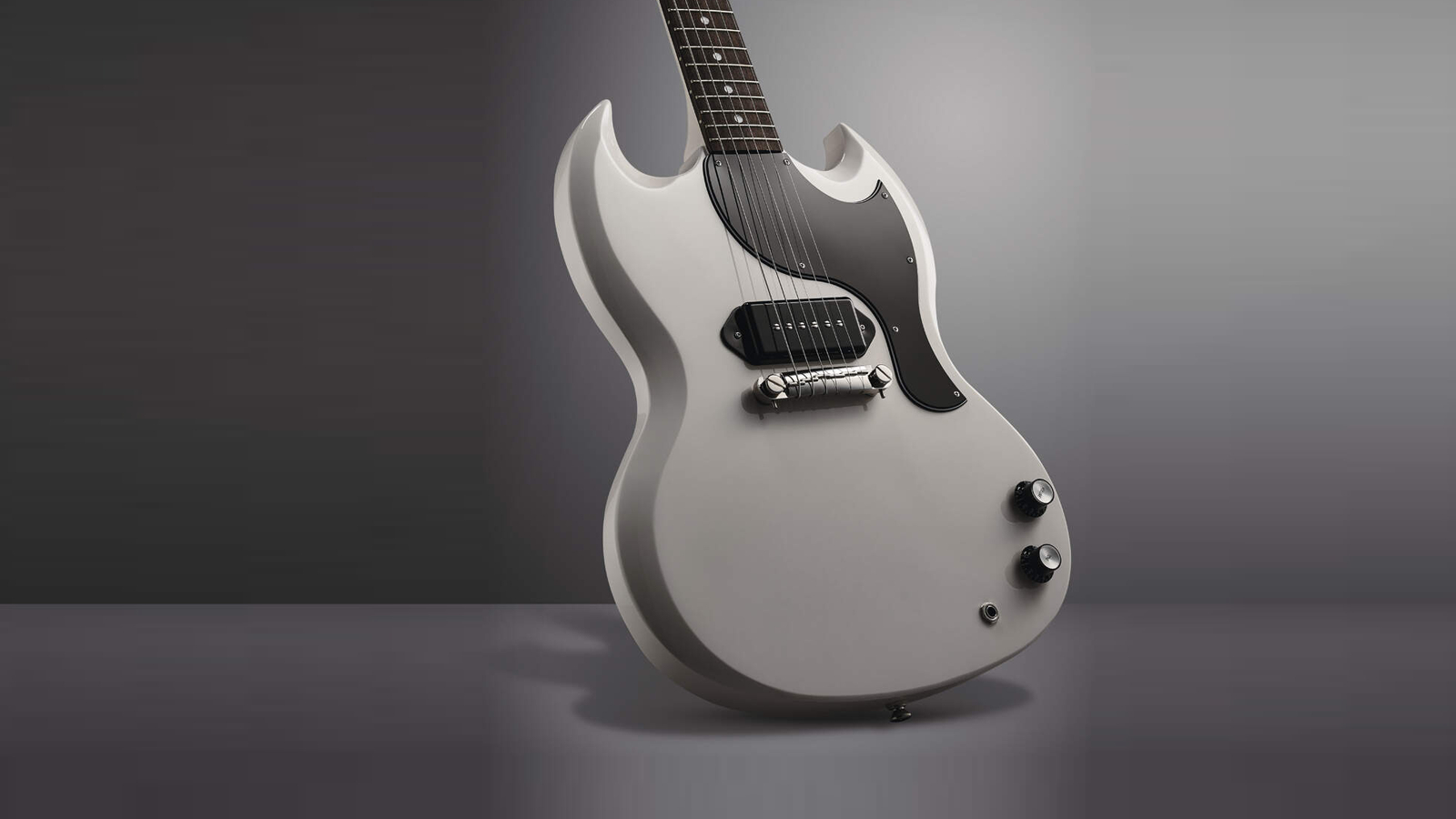MusicRadar Verdict
Impeccably good-looking with playability to match, this is not just a must-try instrument for die-hard Yungblud fans but a beautifully constructed guitar that is sure to appeal to a myriad of players, young and old.
Pros
- +
Great price point
- +
Very playable
- +
Classic punk tone
- +
The black/pink case looks great
Cons
- -
The action was a little low straight out of the box
- -
The frets could do with a polish
MusicRadar's got your back
Epiphone Yungblud SG Junior review: What is it?
Loud, bold, and unapologetically punk rock, Yungblud's first-ever signature axe perfectly mirrors the artist's larger-than-life personality, and we can't think of a better pairing. This single-pickup beauty is a straight-talking, no-nonsense guitar that takes no prisoners in the pursuit of great tone – and better yet, it's highly affordable.
Modelled after his beloved 1964 Gibson SG Junior, this Epiphone version shares many of the same attributes that make his original guitar so special. Taking a peak at the Yungblud model's specs, it's immediately apparent that a lot of effort has gone into making this guitar as playable as possible.
From the mahogany body with the distinctive devil-horned silhouette we've come to expect from an SG and a glued-in mahogany neck with the universally loved Slim Taper C profile to a laurel fingerboard that is peppered with 22 medium jumbo frets, Deluxe Vintage tuners and an Epiphone hardshell case with a hot pink interior, this is a well spec'd instrument considering its relatively low price point.
The impressive specs continue to the electronics, which see the guitar loaded with a single Epiphone Dogear P-90 Pro pickup in the bridge position, wired to CTS volume and tone potentiometers.
When we caught up with Yungblud earlier this year, he told us how important it was that the guitar remains affordable and accessible to younger players, saying, "What we wanted to do is replicate the whole ethos of Yungblud [in a guitar]. It's self-expression and individuality and that's why we [chose to do] it with Epiphone, so it could be affordable and young people can revive guitar music by playing and starting bands."
A noble sentiment indeed, but has he managed to deliver that with the first guitar to bear the Yungblud name? Well, let's find out.
Epiphone Yungblud SG Junior review: Performance & verdict
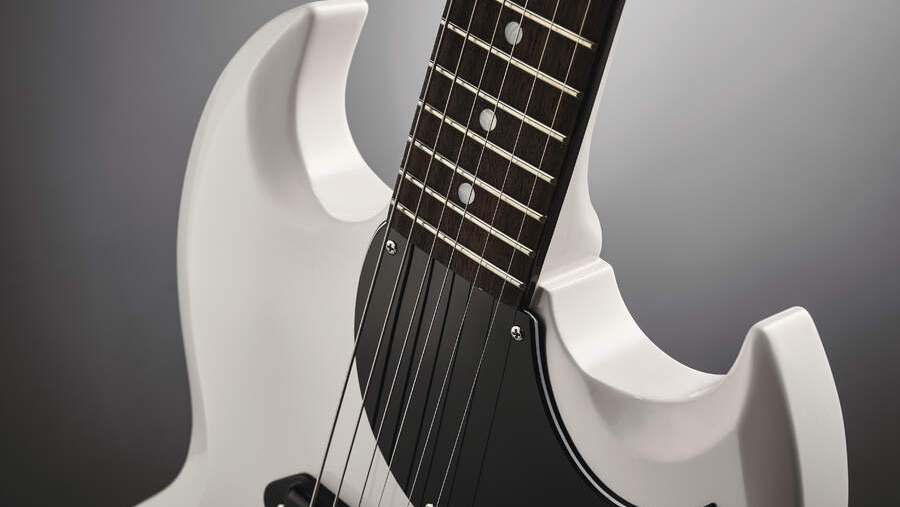
Okay, let's start with the most obvious positive about this new Epiphone guitar, its absolutely stunning aesthetic. The snowy white finish perfectly compliments the bevels of the SG body and looks even better against the shocking pink of the case interior. This configuration may play second fiddle to the more popular Les Paul variant, but there is something about the Junior's features that just look right on the SG body. This guitar is a looker, for sure.
Want all the hottest music and gear news, reviews, deals, features and more, direct to your inbox? Sign up here.
Turning our attention to the neck, we are greeted with a laurel fingerboard. Our review example is pretty dark in hue and could easily pass for rosewood for those unfamiliar with the guitar's spec sheet. Of course, if we were being picky, we'd prefer an authentic rosewood board, but we understand why it isn't present on this model. This guitar is designed to hit a pretty competitive price point, and as such, we expect to have to make some compromises.
As with many Epiphone models, the Yungblud SG Junior features 22 medium jumbo frets, and for the most part, the fretwork was pretty good. Our example didn't have any high spots or sharp ends, but they did require polishing to make them feel and look their best. Now, this has been a fairly common complaint from us regarding Epiphone guitars as of late, so it's something we fully expected.
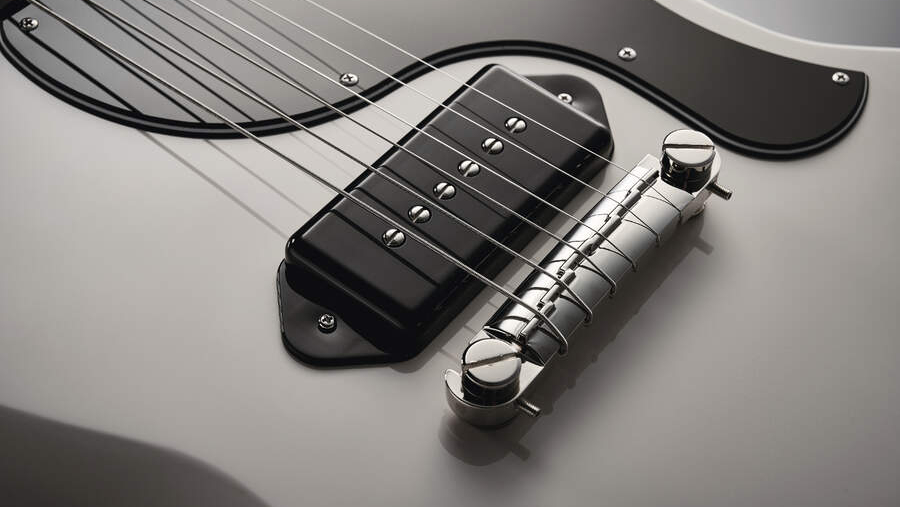
In terms of playability, the SG Junior came with a surprisingly low action straight out of the box. In fact, it was too low. While it was perfect for cowboy chords and riffing around the middle of the guitar, venture past the 12th fret, and things started to get a little buzzy and choke out. The neck on our example was as straight as an arrow, and adding a little relief was enough to sort the issue and get the guitar playing as it should.
Utilizing the popular Slim Taper C profile found on many modern Epiphone guitars, this SG feels incredibly familiar, like an old friend you’ve known for years. The neck is thin with a 12” radius, making it very easy to navigate for both beginners and more advanced players, while the 43mm nut width will be spacious enough for the majority of guitarists.
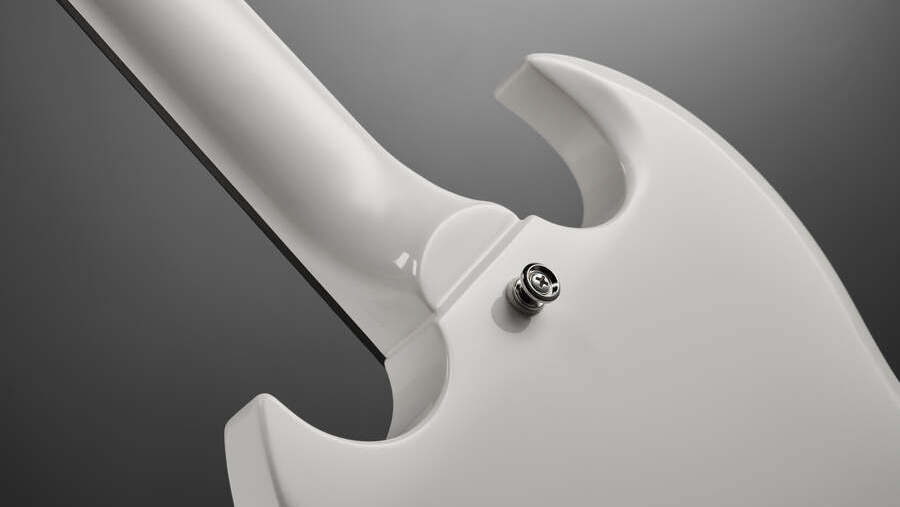
Moving on to tone, and you could be forgiven for thinking this paired-down SG is a one-trick pony – but you couldn't be further from the truth. Many see a single-pickup guitar as too limiting, but when it sounds this good, what more do you need?
The onboard Epiphone Dogear P-90 Pro produces a medium output signal that's capable of producing anything from vintage bark to full-throttle pop punk. It reacts well to volume changes, too. For shimmering cleans, turn down to 4 or 5, for expressive blues, back off on the volume to around 7 or 8, and for full-on distortion, dime your volume to 10.
When we quizzed Yungblud about why he chose to go with a single pickup, he was pretty honest about his playing ability, admitting that this simple approach works better for him. "I loved that it's got one pickup because I think with me, I am not a savant guitar player," discloses Yungblud. "I am an accessible songwriter who literally plays with no pedals. I want one sound," he continues. "I want it to be scrappy, I want it to be real, and I want it to be full of energy and naivety."
As a big fan of P-90-loaded Gibsons, owning several models myself, I instantly feel at home with this guitar's tone. Epiphone has made a valiant effort to recreate the raw and charismatic tone that only comes with this classic single-coil.
Final verdict
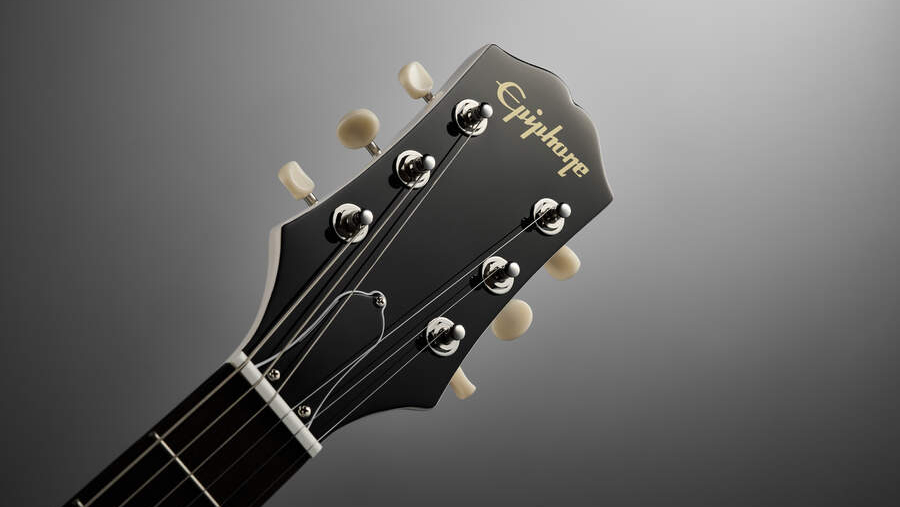
Well, it looks like Epiphone has done it again. They have made yet another fantastic guitar that punches well above its modest price tag. Impeccably good-looking with playability to match, this is not just a must-try instrument for die-hard Yungblud fans but a beautifully constructed guitar that is sure to appeal to a myriad of players, young and old.
Of course, it helps that there is no Yungblud branding on the guitar itself – something that the Doncaster-born singer said was by design. "I really didn't want it to be completely tied to Yungblud. It's such a beautiful instrument within itself," Yungblud tells us. "We kind of made it famous, if you want, but it can be yours as well. I didn't want to put a signature on it."
This guitar has already proven to be incredibly popular among both fans of his music and people who just want a well-playing guitar at a steal of a price, and we're sure we'll be seeing many SG Juniors take to the stage in venues across the country.
Epiphone Yungblud SG Junior review: Hands-on demos
OfficialEpiphone
PMTVUK
Epiphone Yungblud SG Junior review: Specifications
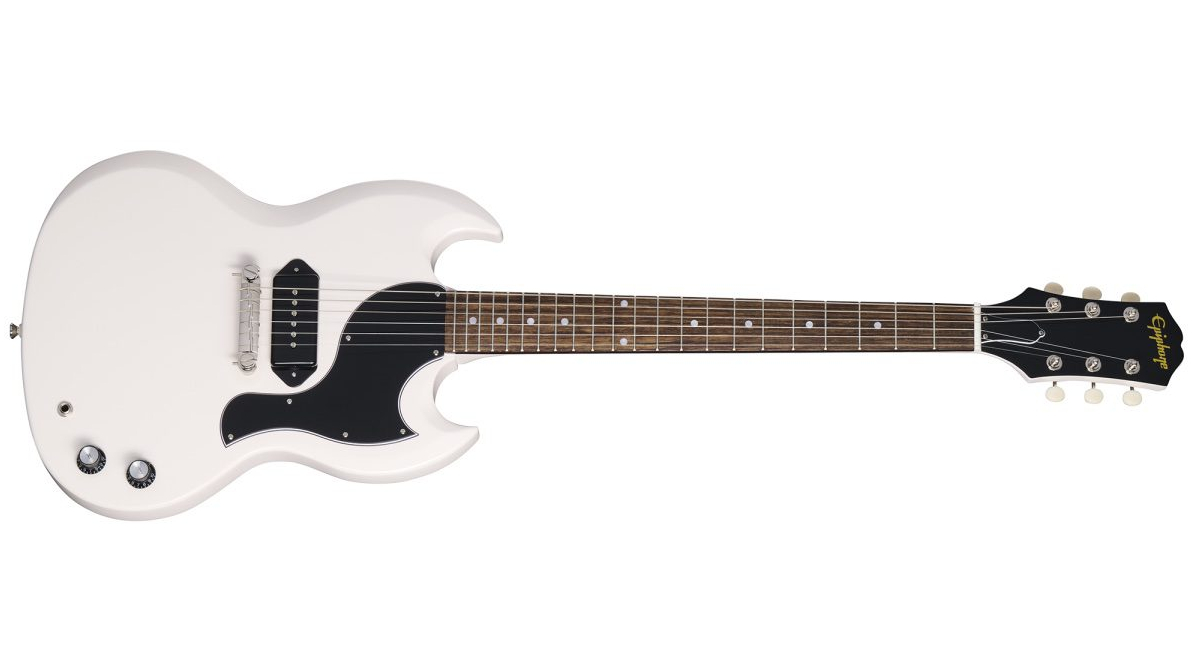
- Body Style: SG
- Body Material: Mahogany
- Neck Material: Mahogany
- Profile: SlimTaper C
- Scale Length: 628.65 mm / 24.75 in
- Fingerboard Material: Laurel
- Fingerboard Radius: 304.8 mm / 12 in
- Frets: 22 Medium Jumbo
- Nut Material: Graph Tech
- Nut Width: 43.0 mm / 1.692 in
- Bridge: Lightning Bar Wraparound Compensating
- Tuning Machines: Epiphone Deluxe Vintage
- Bridge Pickup: Epiphone Dogear P-90 Pro
- Controls: Master Volume, Master Tone; CTS Potentiometers
- Case: Epiphone Hardshell with Hot Pink Interior
- Contact: Epiphone
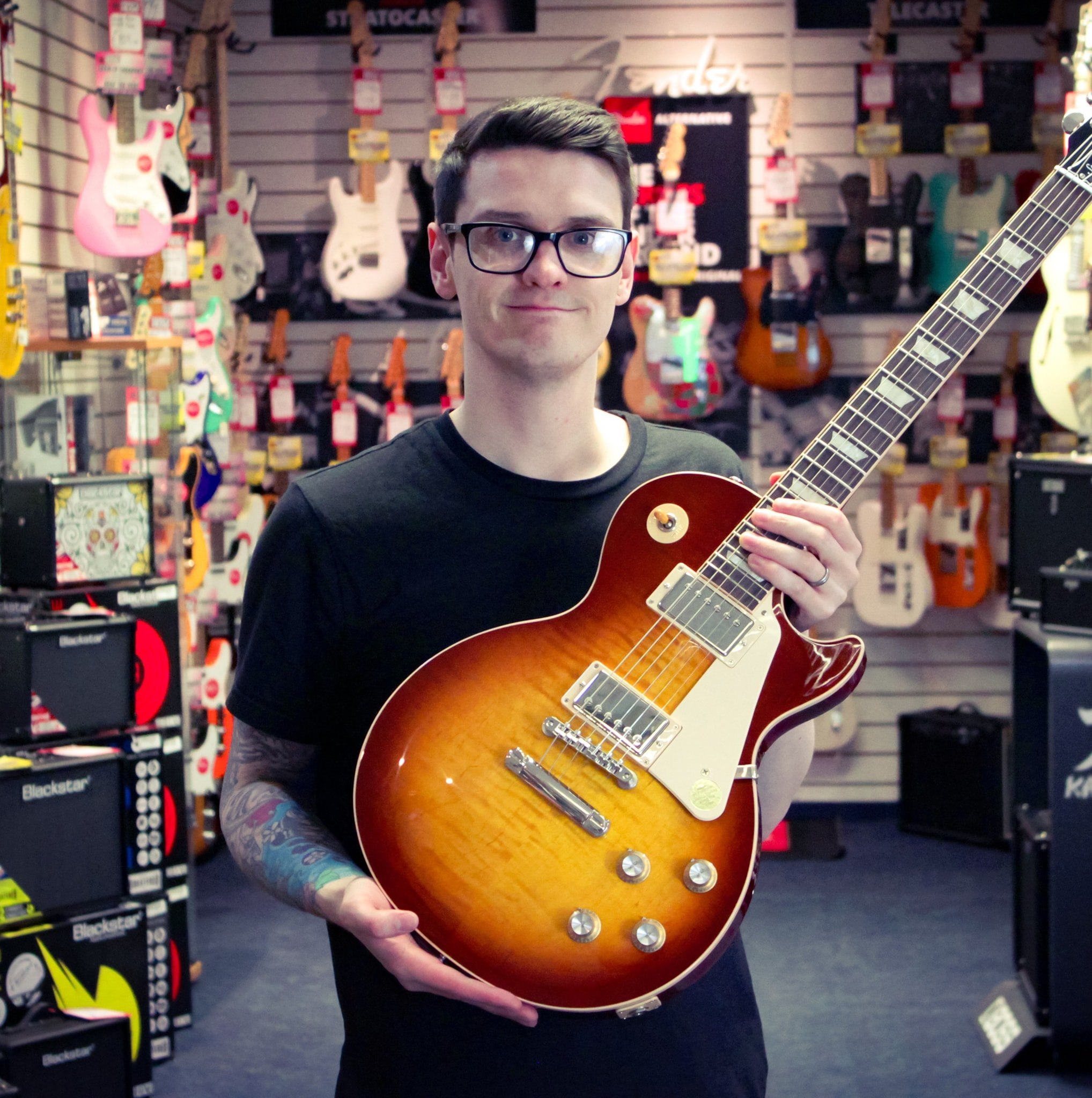
I'm a Senior Deals Writer at MusicRadar, and I'm responsible for writing and maintaining buyer's guides on the site. As part of my role, I also scour the internet for the best deals I can find on gear and get hands-on with the products for reviews. My gear reviews have been published in prominent publications, including Total Guitar, Guitarist, and Future Music, as well as Guitar World.com. I've also had the privilege of interviewing everyone from Slash to Yungblud, as well as members of Sum 41, Foo Fighters, The Offspring, and many more.
In a previous life, I worked in music retail, selling everything from digital pianos to electric guitars. I'm also a fully qualified sound engineer who holds a first-class Bachelor's degree in Creative Sound Production from the University of Abertay.
